No products in the cart.
BML MUNJAL UNIVERSITY: Multidimensional Liberal Arts Education
Named after the founder-chairman of the Hero Group, Dr. Brijmohan Lall Munjal (1923-2015), BML Munjal University, Gurugram (BMU, estb. 2014) provides its 2,700 students a world-class and innovative teaching-learning and research environment. Promoted by the Hero Group — the world’s largest producers of bicycles and automotive two wheelers (scooters; motorcycles) whose various CSR initiatives have educated and empowered over 200,000 Indians — BMU is a non-profit initiative which offers 11 undergrad, postgrad, doctoral and executive degree programs (engineering, law, business management, economics and commerce) supported by compulsory industry internships. BMU also offers up to 100 percent scholarships to students for all its programs.
Over the past near decade, BMU has achieved several milestones and won plaudits and encomiums for building a formidable reputation in research, innovation and hands-on and cross-disciplinary learning. The globally top-ranked Imperial College London came on board as academic mentor in 2013 following which BMU launched its School of Engineering & Technology and started offering its degree programs, along with specialisations. A number of centres of excellence have also been established over the years in partnership with industry. Till date, BMU has signed agreements with over 17 foreign universities. In 2014, BMU launched its School of Management followed by School of Economics and Commerce. In 2019 it launched its law school and four years on, its School of Liberal Studies will begin operations in the academic year 2023-24.
The demand for liberal arts education in India has been gradually building steam since the early 2000s (Godwin 2015). This trend is perhaps most evident in the rise of private universities like FLAME, Krea, Ashoka, Jindal, and BML Munjal University, which offer undergraduate degrees in liberal arts. However, many HEIs are adopting liberal arts approaches without explicitly labeling them as such. At Ambedkar University, Delhi, for example, the interdisciplinary liberal arts framework is woven into the undergraduate program and has proven to be a model for such experiments in the public university system.
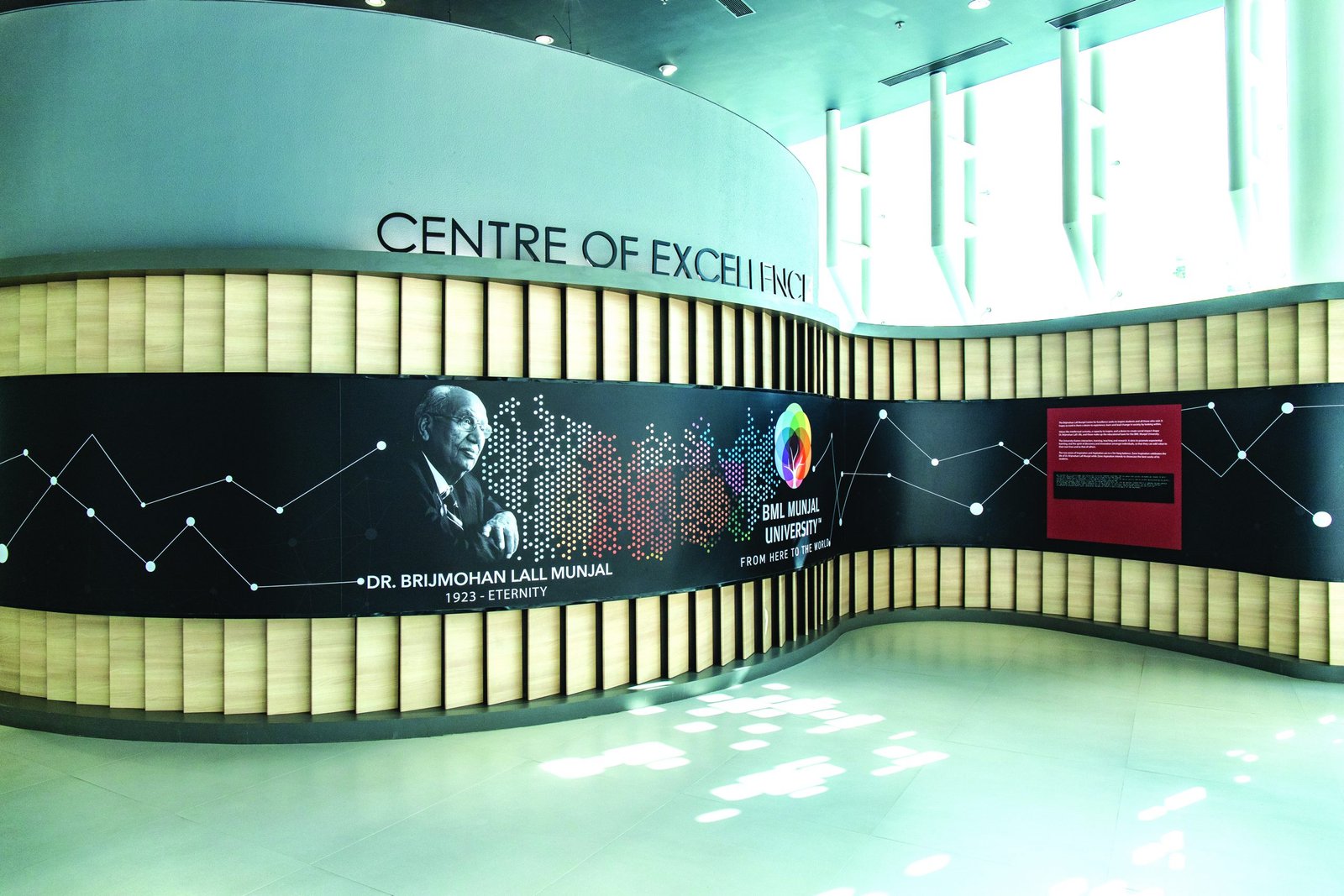 The Central government, for its part, has embraced the move towards liberal education, calling on schools and HEIs to adopt “holistic and multidisciplinary” curriculums that will prepare students to meet the demands of a rapidly changing economic landscape (NEP 2020). Policymakers worry that college graduates are entering the labour force without the skills they need to succeed professionally, and this concern is not without merit. According to the 2021 India Skills Report, less than 50 percent of all college graduates for that year were considered “employable”. If the India Skills Report is accurate, this means that millions of new degree-holders could find themselves unemployed in 2023.
The Central government, for its part, has embraced the move towards liberal education, calling on schools and HEIs to adopt “holistic and multidisciplinary” curriculums that will prepare students to meet the demands of a rapidly changing economic landscape (NEP 2020). Policymakers worry that college graduates are entering the labour force without the skills they need to succeed professionally, and this concern is not without merit. According to the 2021 India Skills Report, less than 50 percent of all college graduates for that year were considered “employable”. If the India Skills Report is accurate, this means that millions of new degree-holders could find themselves unemployed in 2023.
A Liberal Arts education trains students to think critically, creatively, and compassionately about the world and themselves. The most pressing issues of our time — climate change, artificial intelligence, cybersecurity, social inequality, public health, urban growth, rural development, and challenges to democratic institutions — cannot be addressed by any one discipline alone. That is why a Liberal Arts program aims to equip students with disciplinary training as well as a rigorous, interdisciplinary foundation that spans the natural sciences, social sciences, arts, and humanities. This emphasis on depth and breadth prepares graduates to think creatively about real-world problems from multiple angles and to communicate their ideas effectively to diverse audiences.
Does India need a new set of interdisciplinary liberal arts programs?
While interdisciplinarity is gaining traction in policy discourses, educators need to ask the question: what do we actually mean by “interdisciplinarity”? One simplistic approach to “doing interdisciplinarity” is to add courses from the social sciences and humanities onto the syllabi of what were traditionally technical universities. This approach, in theory, could lead STEM students to serious introspection about the pedagogical limitations of their parent discipline. More often, however, this “add humanities and stir” tactic is greeted by scepticism and apathy from STEM students who view such initiatives as costly impositions.
On the other hand, students in the social science and humanities streams rarely have any engagement with natural sciences or technical disciplines. Unlike in the STEM disciplines, there are few models in the Indian context where arts and humanities students engage seriously with the natural sciences. Even in contexts where students are introduced to multiple disciplines, individual courses largely exist as independent entities, taught by teachers trained in disciplines and often without an interdisciplinary framework to teaching. In such a situation. what does it mean to build more such programs?
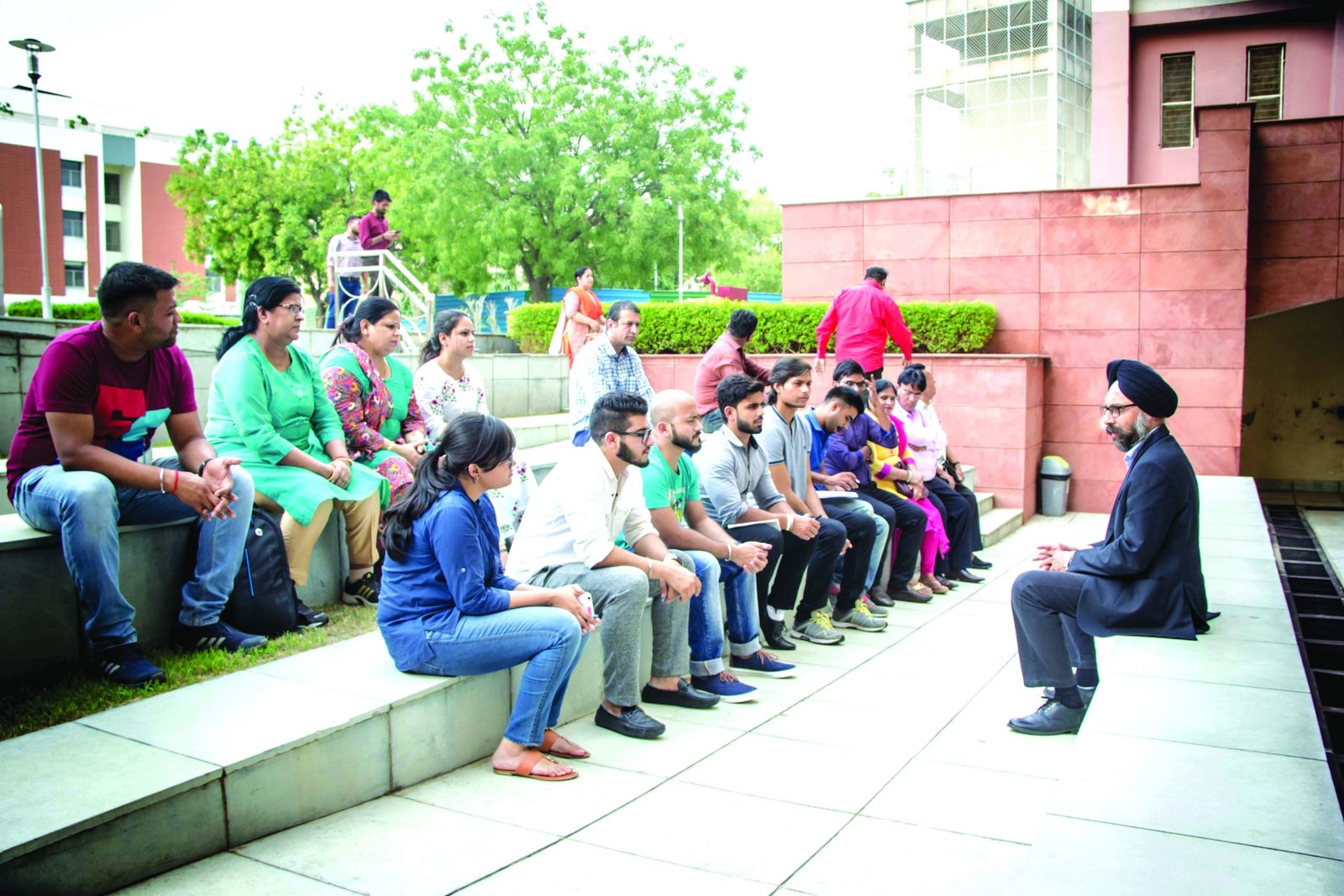 Some academics may view the move towards interdisciplinary education as an unfair critique of disciplinary specialisation. They will argue, rightly, that scholars have long engaged with tools outside of their own fields. After all, most of the scientific discoveries and inventions over the past century have been from discipline specialists. Similarly, a close look at any serious academic publications within a particular discipline shows that research has already been interdisciplinary, if not transdisciplinary, for quite some time. In this case, what does this new call for interdisciplinary education aim to achieve? Will it dilute disciplinary expertise and water down competency? We do need specialists and experts in particular fields – can interdisciplinary liberal arts provide this depth to have mastery in a discipline?
Some academics may view the move towards interdisciplinary education as an unfair critique of disciplinary specialisation. They will argue, rightly, that scholars have long engaged with tools outside of their own fields. After all, most of the scientific discoveries and inventions over the past century have been from discipline specialists. Similarly, a close look at any serious academic publications within a particular discipline shows that research has already been interdisciplinary, if not transdisciplinary, for quite some time. In this case, what does this new call for interdisciplinary education aim to achieve? Will it dilute disciplinary expertise and water down competency? We do need specialists and experts in particular fields – can interdisciplinary liberal arts provide this depth to have mastery in a discipline?
Another set of questions concerning liberal arts programs in India is with respect to the length of the programs. Students and parents may regard a four-year degree in the arts, sciences and humanities with suspicion, wondering if the additional year will add any benefit. The cost of such programs — in terms of tuition and opportunity — also raises questions about access and equity. It is often seen as catering to only those from the upper classes who can afford to experiment with their university education and who are not immediately concerned with finding employment after graduation.
Any discussion of a new Liberal Arts program ought to offer answers to these questions. The next section outlines a set of responses that we at the School of Liberal Studies at BML Munjal University (BMU) have developed in consultations with educators, school leaders, teachers and other liberal arts universities in India and these responses guide our vision of an interdisciplinary liberal arts program at BMU.
Why Liberal Arts?
 At the School of Liberal Studies (SoLS), BMU, we are conceptualising our Liberal Arts curriculum with an eye to three sets of considerations. First, we want to create institutional structures that are dynamic and capable of responding to the changing demands of the time. We believe this requires us to rethink disciplinary boundaries, rigid curricular structures and pedagogical practices. Second, we want to promote a culture of self-directed and life-long learning, in which students are encouraged to take charge of their education, pursue those fields that they like and experiment with different disciplines. Third, we believe knowledge is co-produced between teacher and student, and that faculties should be encouraged to bring their research into the classroom, design courses that speak to their research, and mentor students in their academic choices.
At the School of Liberal Studies (SoLS), BMU, we are conceptualising our Liberal Arts curriculum with an eye to three sets of considerations. First, we want to create institutional structures that are dynamic and capable of responding to the changing demands of the time. We believe this requires us to rethink disciplinary boundaries, rigid curricular structures and pedagogical practices. Second, we want to promote a culture of self-directed and life-long learning, in which students are encouraged to take charge of their education, pursue those fields that they like and experiment with different disciplines. Third, we believe knowledge is co-produced between teacher and student, and that faculties should be encouraged to bring their research into the classroom, design courses that speak to their research, and mentor students in their academic choices.
The BA(H) in Liberal Arts at SoLS is designed following these principles and the acknowledgement that depth in a discipline demands an interdisciplinary framework. Education ought to offer tools to students to contextualise their learning in the milieu in which they are situated. The pandemic made explicit the interconnected nature of the globe and made us aware that our experience of phenomena is cumulative. Thus it is not enough to have a high level of specialised study in biology, computational systems or the cultural specificities of populations. Instead, we need an educational model that will train scholars, policymakers, and leaders who will be able to bring these specialisations together to address 21st century problems. Any discussion of issues in the social or natural world can therefore only take an internationalist perspective, situated in the tradition of interdisciplinary studies and grounded in the lived experience of the participants.
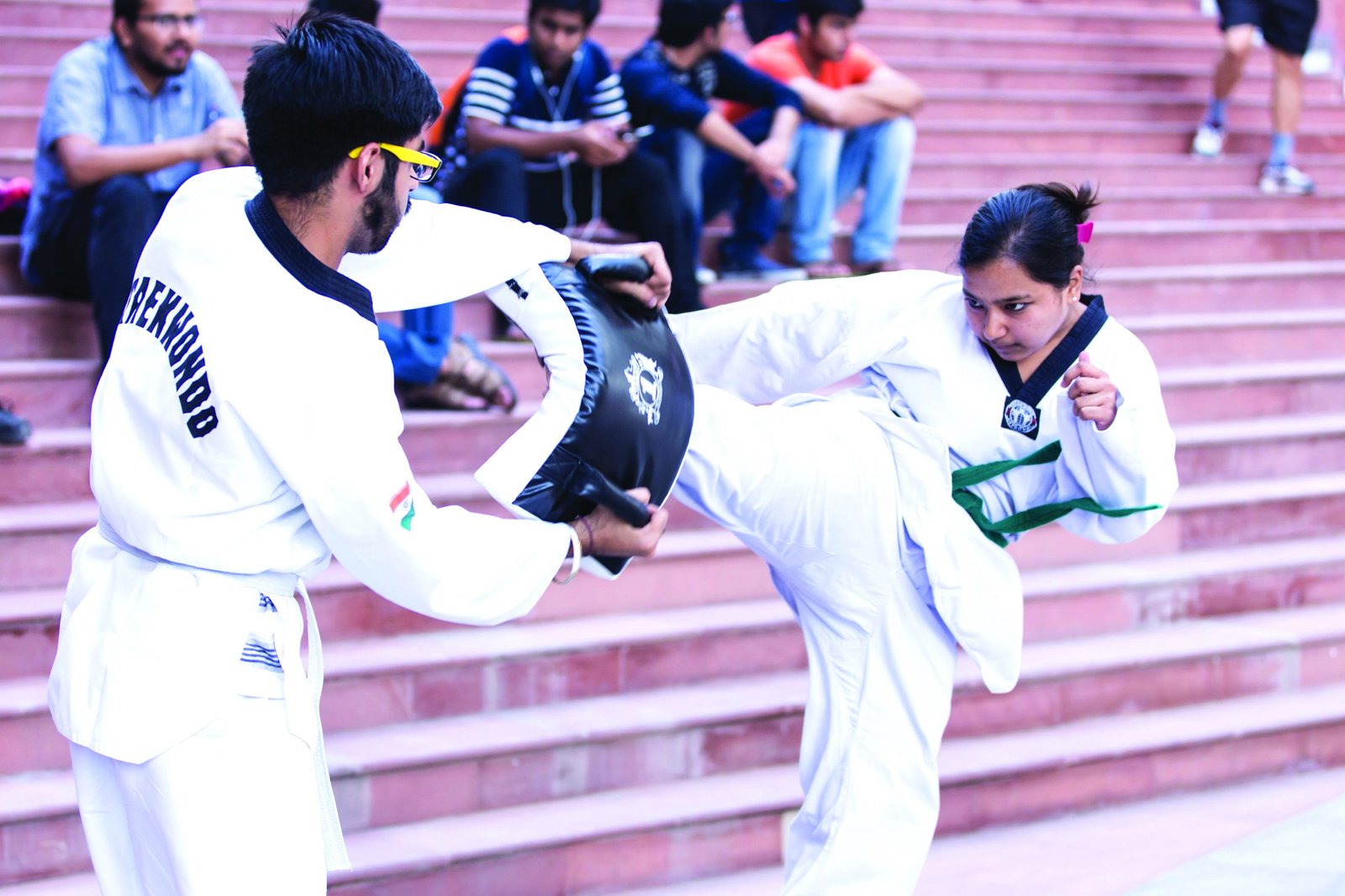 Here we recognise that the turn towards interdisciplinary education in the NEP 2020 as well as UGC FYUP have presented an opportunity for educators in this regard. SoLS considers all disciplinary knowledge as the sum total of the collective knowledge created by all, owned by all and hence to be learned and practised by all. Here we can create engineers, scientists, educationists, developmental practitioners, managers, civil servants, environmentalists, journalists and bankers to be self-reflexive so that this shared sense of collective ownership and achievement guides their life. We believe that this anchor can in fact be the best life skill that any educational program can offer. We aim to create a program that can equip them to specialise in a particular field of scientific inquiry but also teaches them that all knowledge must be historicized. This will require all students to develop an understanding in social and natural sciences such that, though they might not Major in a particular field, they will have an informed opinion about how their own practice is interconnected to other fields and how their actions can impact the history and future of humanity.
Here we recognise that the turn towards interdisciplinary education in the NEP 2020 as well as UGC FYUP have presented an opportunity for educators in this regard. SoLS considers all disciplinary knowledge as the sum total of the collective knowledge created by all, owned by all and hence to be learned and practised by all. Here we can create engineers, scientists, educationists, developmental practitioners, managers, civil servants, environmentalists, journalists and bankers to be self-reflexive so that this shared sense of collective ownership and achievement guides their life. We believe that this anchor can in fact be the best life skill that any educational program can offer. We aim to create a program that can equip them to specialise in a particular field of scientific inquiry but also teaches them that all knowledge must be historicized. This will require all students to develop an understanding in social and natural sciences such that, though they might not Major in a particular field, they will have an informed opinion about how their own practice is interconnected to other fields and how their actions can impact the history and future of humanity.
At BMU, the BA(H) in Liberal Arts is anchored in our Foundational Courses (FCs). These interdisciplinary courses, common to all first-year undergraduates, allow students to explore the methods, debates, history and politics involved in the natural and social sciences. FCs serve two primary purposes for SoLS. First, they introduce students to the guiding principles of Liberal Arts. Second, they equip them to undertake the project of education as a lifelong activity. This process is not merely additive, with students simply accumulating new knowledge into their pre-existing framework and subjectivities. Rather, FCs aim to displace the existing categories that students are familiar with and encourage them to take a qualitative leap into unfamiliar territory.
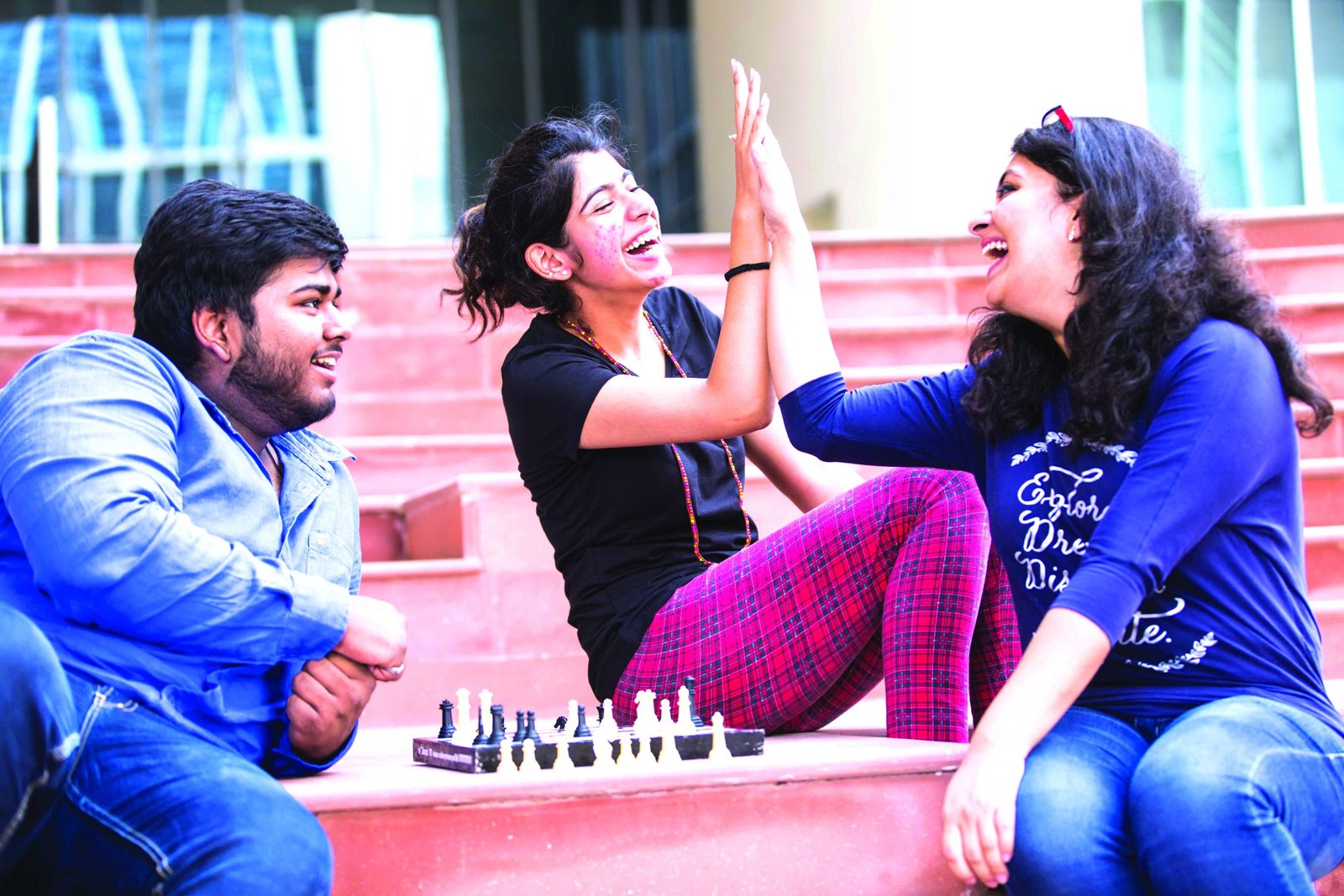 Since the BA program revolves around the Majors, FCs also serve to introduce students to the Majors, giving them an opportunity to appreciate the strengths of other disciplines. For the initial cohort who will begin their studies at BMU in August 2023, SoLS will offer Majors and Minors in the Social Sciences and the Humanities. Each of the Majors are designed by established academicians from across India and will equip students with the core disciplinary grounding, professional skills, and hands-on experiential learning they need to thrive. BML faculty are recruited from leading universities worldwide who will bring their expertise to offer a truly international perspective to each of the courses.
Since the BA program revolves around the Majors, FCs also serve to introduce students to the Majors, giving them an opportunity to appreciate the strengths of other disciplines. For the initial cohort who will begin their studies at BMU in August 2023, SoLS will offer Majors and Minors in the Social Sciences and the Humanities. Each of the Majors are designed by established academicians from across India and will equip students with the core disciplinary grounding, professional skills, and hands-on experiential learning they need to thrive. BML faculty are recruited from leading universities worldwide who will bring their expertise to offer a truly international perspective to each of the courses.
The uniqueness of SoLS, within an ecosystem including professional schools of management, engineering and law, also means that SoLS is able to make use of the expertise of faculties from across schools at BMU. Thus, SoLS will also be offering interdisciplinary Minors in Mathematics, Data Science, Computer Programming and Physics. We plan to increase this list of interdisciplinary Majors and Minors in the coming years.
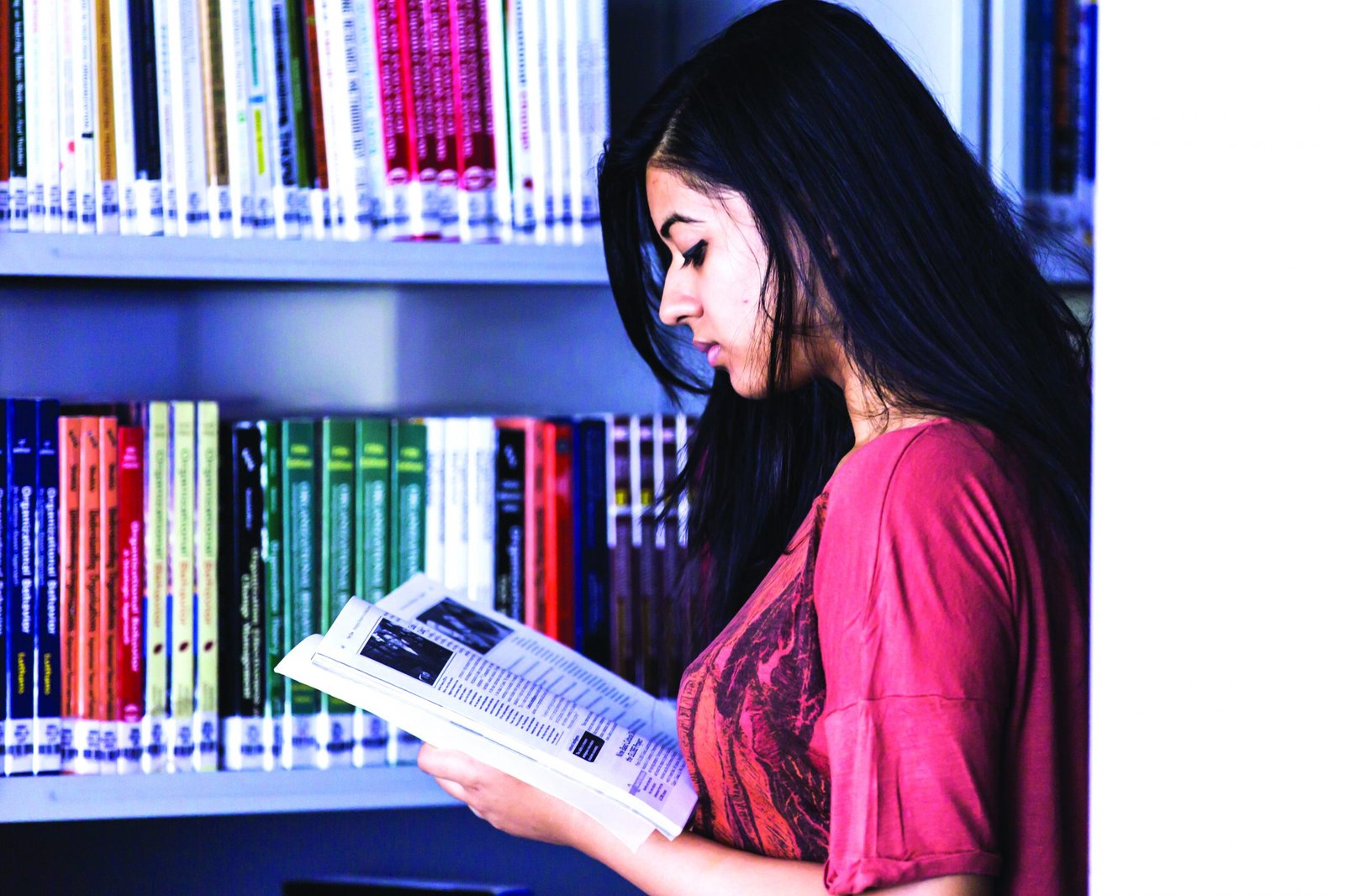 SoLS students will be equipped to weave together diverse disciplinary perspectives, while being grounded in their parent discipline so they will have expertise in a chosen Major and at the same time have a critical perspective towards their specialisation as well. Thus for example, a Biology Major shall know the social situation of the world which allowed a Darwin to emerge and his theory to be accepted. She shall also be expected to know the various ways his ideas were used by various groups – for example, how they were used by Nazis in their ethnic cleansing or how it was used to undermine the basis of racial separation or how it taught all of us that we are all part of the same human species. Similarly a Sociology Major shall know the developments in digital technology, how technology enables global surveillance and at the same time, how scientists have used technology to inform us about climate change.
SoLS students will be equipped to weave together diverse disciplinary perspectives, while being grounded in their parent discipline so they will have expertise in a chosen Major and at the same time have a critical perspective towards their specialisation as well. Thus for example, a Biology Major shall know the social situation of the world which allowed a Darwin to emerge and his theory to be accepted. She shall also be expected to know the various ways his ideas were used by various groups – for example, how they were used by Nazis in their ethnic cleansing or how it was used to undermine the basis of racial separation or how it taught all of us that we are all part of the same human species. Similarly a Sociology Major shall know the developments in digital technology, how technology enables global surveillance and at the same time, how scientists have used technology to inform us about climate change.
SoLS students will be equipped to weave together diverse disciplinary perspectives while being grounded in their parent discipline
Making this complex connection requires SoLS to design a Liberal Arts course that can create criss-crossing pathways between specialisations. This interconnected coursework must be grounded in students’ lives, enabling them to develop concepts and theories that help them make sense of their life experience. Therefore immersive fieldwork, internships, student-led seminars, innovative assessments, and a dialogic classroom atmosphere are all crucial components of our BA program.
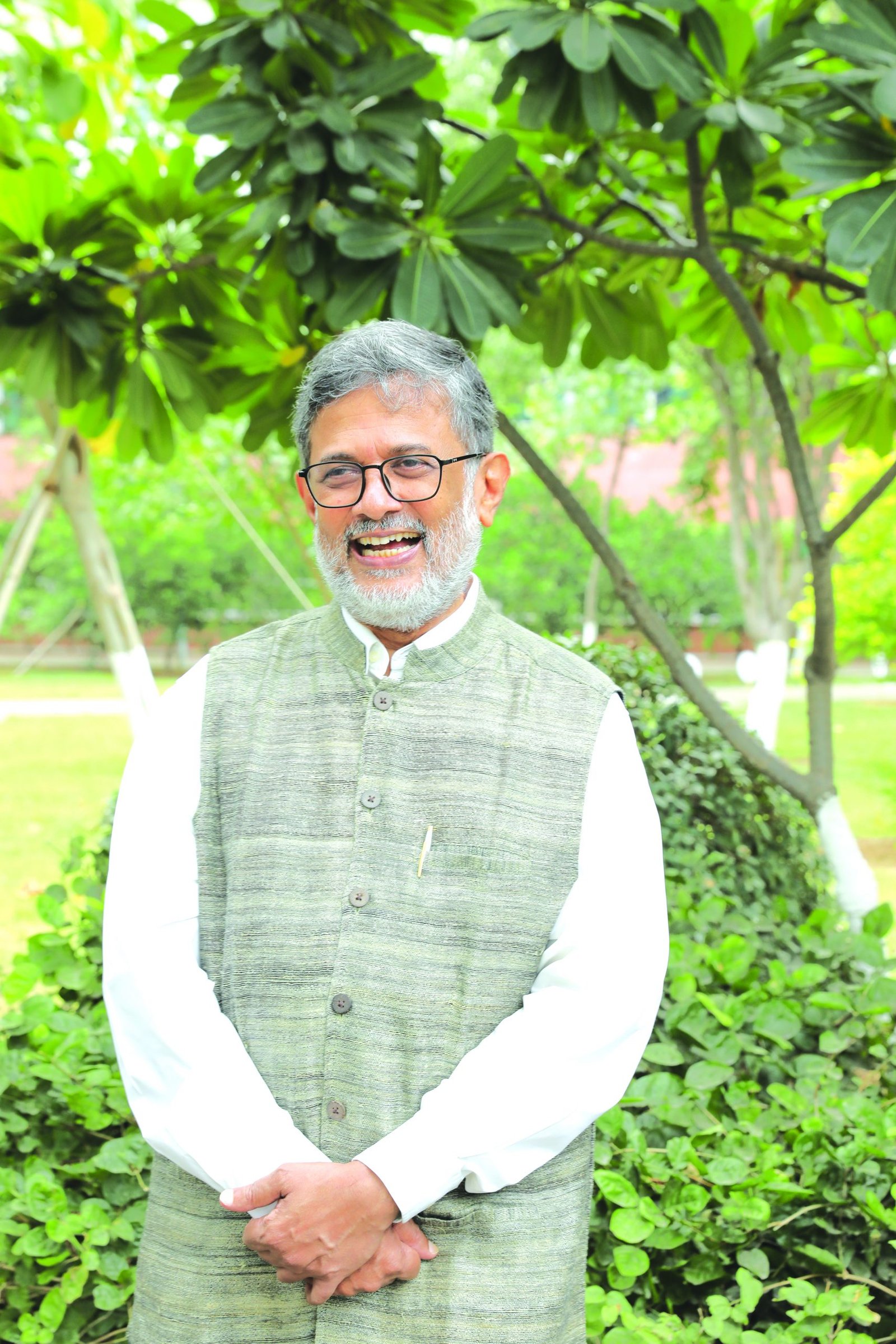
Prof. Shyam Menon
Vice Chancellor
Are the liberal arts elitist?
For many students and their families, the price-tag for a private liberal arts degree is simply too much. Depending on the school, the cost of tuition fees range from Rs. 2.25-9.25 lakh per year and upto Rs 11 lakh inclusive of room and board. The high premium is due, in large part, to the fact that private universities don’t receive government support and must therefore recover their costs through tuition fees. Many would come to the conclusion that private liberal arts programs are elitist. How can educators responsibly answer this charge?
To begin, private institutions must not lose sight of education as a public good. Dr. Shyam Menon, the Vice Chancellor at BMU, puts it this way: “All institutions of Higher Education (particularly Universities) are public institutions. They may be promoted by either governments or private entities. But all of them are legislated through institutional procedures provided for in the Constitution of India. In that sense, all of them serve a public function. In essence, therefore, Education (including Higher Education) remains a public good. Those institutions of Higher Education (both government supported and privately promoted) that work in Liberal Studies are committed to the creation and nurturance of a leadership that is imaginative and creative, and with high levels of sensibilities and awareness of the social and historical contexts.”
“Those institutions of higher education that work in Liberal Studies are committed to the creation and nurturance of a leadership that is imaginative and creative…” — Dr. Shyam Menon, Vice Chancellor, BMU
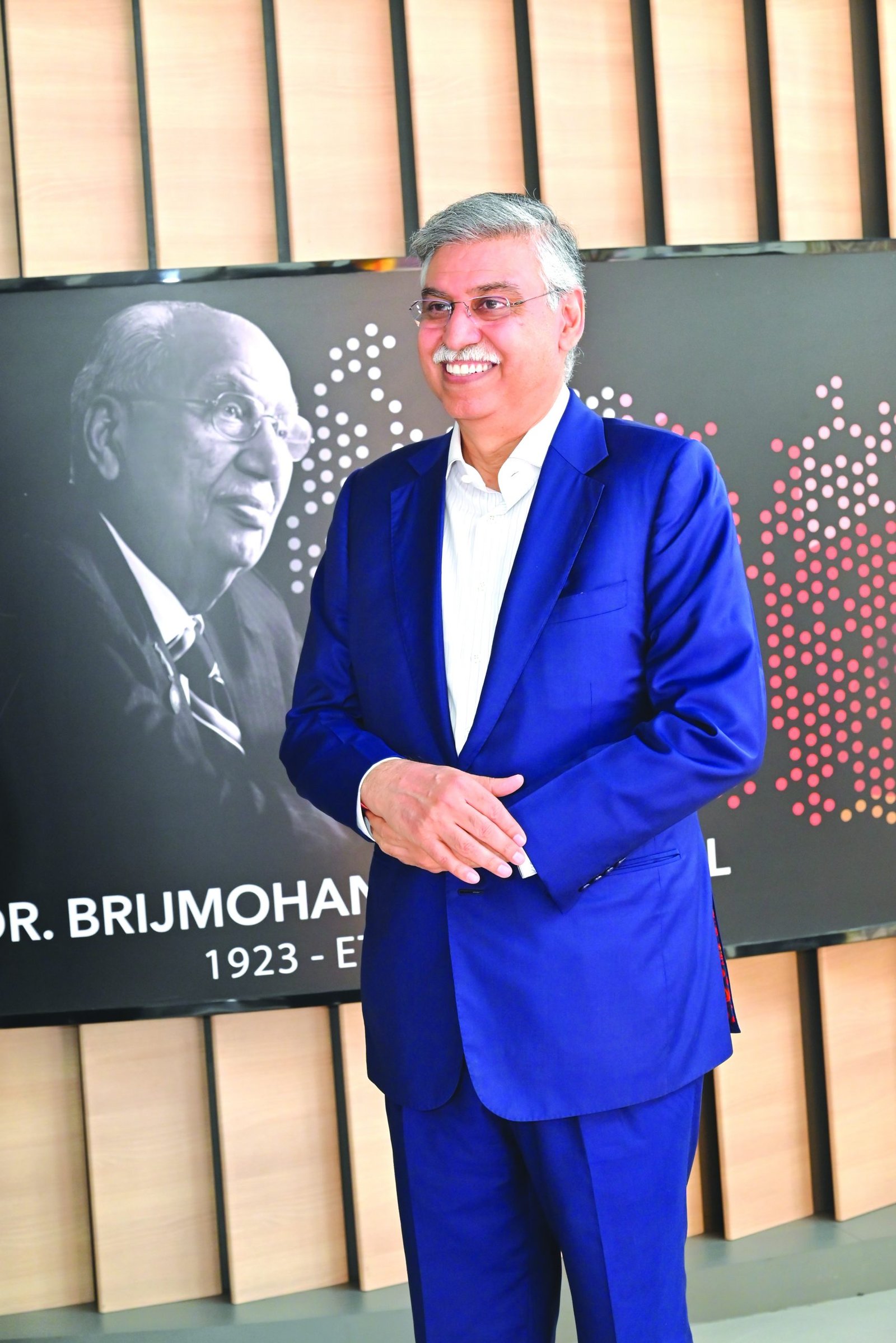
Sunil Kant Munjal
Chancellor, BMU
Framing their work as a public good, liberal arts universities should then focus their efforts on building the next generation of ethical leaders. As Dr. Menon states: “The Liberal Arts are for creating and nurturing leadership. In a world of increasing specialisations, it is important to have a leadership that comprehends, can communicate effectively with and thus lead a wide spectrum of narrowly specialised professionals. So, liberal arts is for those who are ready to have a longer gestation period to leadership positions, not so much focused on immediate returns to their investment in higher education.”
Finally, private universities need to be upfront with students about the financial risk of choosing them over a public institution. Private liberal arts programs are expensive because they recruit top talent, deliver cutting-edge curriculum, and promote low student-to-faculty ratios. Their students receive a world-class education at a fraction of the cost and without going abroad. However, the issue remains: Are the Liberal Arts only for those who can pay? Private programs, if they are truly committed to the values of liberal education, must be prepared to invest in their student body in the form of generous merit-based scholarships, need-based fee waivers, and graduated tuition scales.
A liberal arts education trains students to think critically, creatively, and compassionately about the world and themselves
SoLS: Majors & Minors
Majors: SoLS will offer five majors to its first undergraduate cohort. In coming years, we plan to develop majors in the natural sciences:
▪ Economics
▪ Literature
▪ Philosophy
▪ Psychology
▪ Sociology
Minors: All major fields can be taken as minors. In addition to these fields, SoLS will also be offering the following three fields as minors:
▪ Data Science
▪ Mathematics
▪ Physics
SoLS Foundation Courses
Writing Seminar: This semester-long, first-year seminar introduces students to different modes of critical inquiry and academic writing. Students develop appreciation for diverse academic approaches to real world problems while developing core skills in reading and writing. They will write short pieces ranging from autobiographical accounts to historical analysis to policy, that will allow them to practice different styles of written communication.
Writing Collective: In the second semester of their Freshman year, students meet weekly with a small cohort of peers, supervised by a faculty advisor. The collective is mandatory and students are given grades. Students are expected to write assignments for other classes and provide feedback and support to peers.

Dr. Pritam Baruah
Dean, School of Liberal Studies
Reading Critically: An Introduction to the Disciplines 1 and 2: The primary aim of this two-semester course sequence is to train students in critical reading and note-taking strategies. The secondary aim is to give students a glimpse of the disciplines they may choose as their major or minor. Each semester will be divided into two-week units, with each unit covering one of our major offerings. At the end of the course, students will select a text from a carefully curated, multi-disciplinary list and will be given a week to read their selection and write a brief review.
South Asia in Global History (Primary field: History and Political Science; Optional secondary fields: Anthropology, Literary Studies, Sociology): This course will introduce students to historical thinking through a study of the subcontinent and its many global connections. This course examines South Asia in the context of global influences from antiquity to the present day.
Reason and Logic: Anatomies of Thought (Primary field: Philosophy; Optional secondary fields: Mathematics, computer science, psychology): Students will investigate formal reasoning –its complex genealogy, current methodologies, and diverse applications — as well as debates among philosophers about its possibilities and limits.
Self and Identity (Primary field: Psychology or Literature; Optional secondary fields: Literature, history, philosophy, political science, economics, law): A liberal education begins with the pursuit of self-knowledge: Who am I? How do I relate to others and my environment? This class will explore this question through the lens of Psychology or Literature.
Paradigms in the History of Science (Primary field: Philosophy or History of Science, Science and Technology Studies; Secondary fields: Physics, chemistry, computer science, mechanical engineering): This course is designed to help students develop a critical appreciation for science. Students will be encouraged to think about how ideas, inventions, and paradigmatic shifts in science and technology are always grounded in — and interpreted through — specific social, cultural, political, and material contexts.
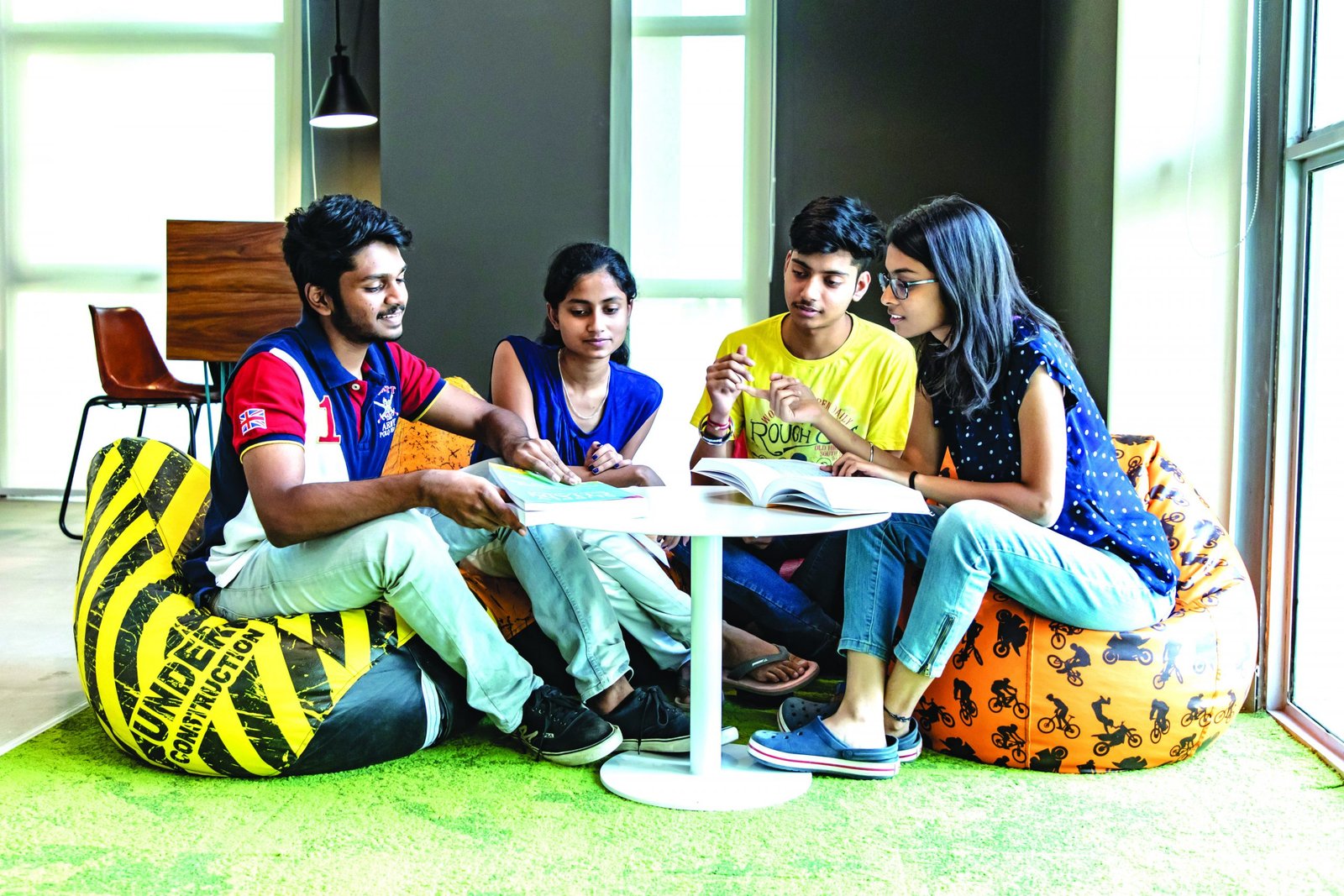 India and Its Environs (Primary field: Environmental science; Secondary fields: chemistry, physics, law, history, political science): This class continues a core theme present across all foundational courses: Who am I?, who are we?, how are we connected? This course will focus on pure or applied science of environmental studies and/or its social science dimensions.
India and Its Environs (Primary field: Environmental science; Secondary fields: chemistry, physics, law, history, political science): This class continues a core theme present across all foundational courses: Who am I?, who are we?, how are we connected? This course will focus on pure or applied science of environmental studies and/or its social science dimensions.
Data Literacy (Primary field: Economics or Political Science; Secondary fields: data science, statistics): In the age of Big Data, students need to develop their quantitative literacy. This course provides an introduction to statistics and data science, through a specific epistemological framework. Students learn to assess quantitative data using questions, assumptions, and norms of either economics or political science.
Health: Most of our students will be living away from home for the first time. This can be an overwhelming challenge for many, as they are confronted with newfound autonomy and the numerous opportunities they have to make decisions about identity, relationships, sex, money, diet, spirituality, personal organization, and professional goals. Health will meet once a week and provide a space for students to access reliable sources of information and dialogue with peers and a trained faculty mentor about these important issues.
Works cited ▪ Godwin, K. A. (2015). “The Worldwide Emergence of Liberal Education.” International Higher Education, (79), 2-4. https://doi.org/10.6017/ihe.2015.79.5835 ▪ Pushkar. (2022). The Coming Liberal Arts Wave in India. International Higher Education, (109), 15-17. Retrieved from https://ejournals.bc.edu/index.php/ihe/article/view/14485. ▪ Ministry of Human Resource Development, Government of India (2020). National Education Policy. New Delhi, 2020. https://www.education.gov.in/sites/upload_files/mhrd/files/NEP_Final_English_0.pdf (accessed 22 August 2022). ▪ University Grants Commission (2022). Curriculum and Credit Framework for Undergraduate Programmes. New Delhi, 2022. https://www.ugc.ac.in/pdfnews/7193743_FYUGP.pdf (accessed 16 January 2023). ▪ Wheebox (2021). India Skills Report 2021. Gurgaon, 2021. https://indiaeducationforum.org/pdf/ISR-2021.pdf (accessed 2 February 2023).







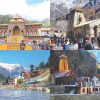








Add comment